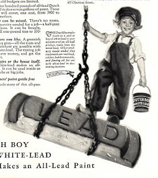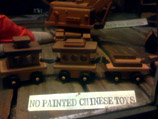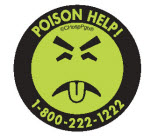An AP investigation has found that, barred from using lead in children’s jewelry, some Chinese manufacturers have substituted cadmium — which is more dangerous. The AP tested one piece of jewelry that was 91% cadmium by weight. The heavy metal is a known carcinogen and is used in rechargeable batteries, pigments, electroplating and plastic. Children can ingest the cadmium by sucking or biting on the jewelry. They do not need to swallow it. [More]
consumer product safety improvement act

CPSC Delays Most Of CPSIA By One Year
The Consumer Product Safety Improvement Act (CPSIA) has been delayed for one year for crafters, children’s garment manufacturers and toy makers by the CPSC. Instead of just giving specific exemption for like libraries and Etsy peeps, the CPSC decided to kick the can down the road. At least, however, the lead paint ban and lead in children’s jewelry standards will still go into effect.

Don't Worry, Reselling Children's Clothing Isn't About To Become Illegal. Probably.
Reselling your kid’s used clothing could soon violate federal law. Come February 10, the Consumer Product Safety Improvement Act will prevent retailers from selling children’s products that haven’t been certified as lead free. Old hand-me-downs, of course, haven’t been certified for anything more than running around the yard. Parents are worried, petitions are being drawn up, and the Consumer Product Safety Commission isn’t doing much to clarify the law.

Hooray! CPSC Agrees To Exempt Some Natural Items From Product Safety Act
Step back from the ledge, makers of lovingly hand-carved wooden dolls: the Consumer Product Safety Commission has lurched into action and tentatively agreed to exempt some materials and items from the lead-testing requirements in the Consumer Product Safety Improvement Act.


